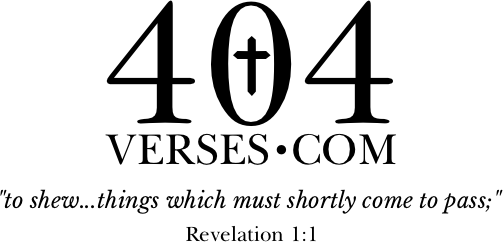And he had in his right hand seven stars: and out of his mouth went a sharp twoedged sword: and his countenance was as the sun shineth in his strength.
And he had in his right hand seven stars:
Again, this verse contains the continued description of the glorified person of Jesus begun in verse 10. Jesus’ right hand represents strength, ability, and sustenance (Exodus 15:6, 12; Psalm 63:8; Psalm 98:1; Psalm 118:14-16; Psalm 139:9, 10; Isaiah 41:10). The “seven stars” are the “angels” or “messengers” (Gr.) of the seven churches (Job 38:6, 7; see on Revelation 1:20, Revelation 12:4, 7-9, and Revelation 2:1). In this case, these “messengers” are likely the elders or overseers of the seven churches (Haggai 1:13; Malachi 2:7; Matthew 11:9-11; Mark 1:2; Luke 7:24-28; Luke 9:51, 52). How can this be? Well…for while it is always true that the English word “angel” is a transliteration of the Greek word “ang’-el-os”, meaning “messenger”, it is not always true that this messenger is always of the supernatural beings referred to as “ministering spirits” in Hebrews 1:14. Regarding its usage, Strong’s Concordance‒a widely accepted index of every word in the King James Version‒asserts that an angel “can refer to ‘a human messenger’ (cf. John the Baptist, Mt 11:10, quoting Mal 3:1; see also Lk 7:24, 9:52).” As a pretty safe rule, the context determines whether a human or celestial messenger is intended. Now, how he held these “stars” is not said. It may be that they seemed to rest on his open palm, or that he seemed to hold them as if they were arranged in a certain order. Their being in Jesus’ right hand shows that they are under his special care and most powerful protection.
and out of his mouth went a sharp twoedged sword:
The mouth (the tongue) is a source of great influence (James 3:1-6) and a revealer of character (Psalm 36:3; Psalm 59:12; Matthew 12:34, 35; James 3:8-18). The character of Jesus is revealed by what He says (John 18:19-23). A “twoedged” sword represents the authority of divine truth (Ephesians 6:17; Hebrews 4:12). Its literal, ancient, counterpart was short and quite resembled a dagger. The two edges were designed to cut both ways and serves well as a striking emblem of the penetrating power of truth, or of words that proceed from the mouth. Such is, undoubtedly, the intended representation here‒that is, it serves as a symbol which shows that Jesus’ words, or his truth, has the power of cutting deep, or penetrating the soul. So, in Isaiah 49:2, it is said of the same personage, “And he hath made my mouth like a sharp sword.” Jesus, himself, is the embodiment of this truth‒that is, he is the Word of God (John 1:1; John 14:6; John 17:17; see on Revelation 19:13), and he is quick to discern and infinitely able to judge the thoughts (reflections, conceptions, intents) of the human heart and address them with unfailing wisdom and divine authority.
and his countenance was as the sun shineth in his strength.
In verse 14, there is a description of Jesus’ hair and eyes. But this is one of the general splendor and brightness of his countenance‒as it were the sun in its full splendor, unobscured by clouds (compare 2 Samuel 23:4). Certainly, there can be no more striking description of the majesty and glory of the Divine countenance than this.

